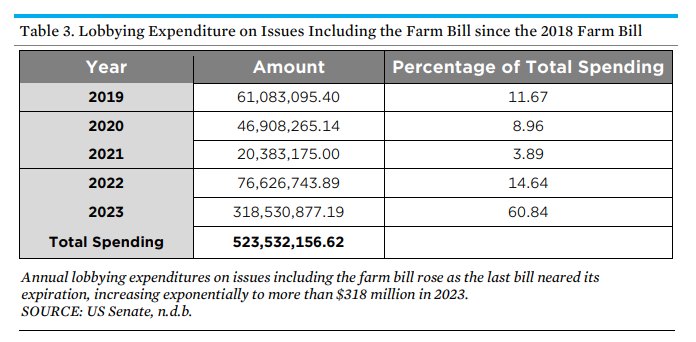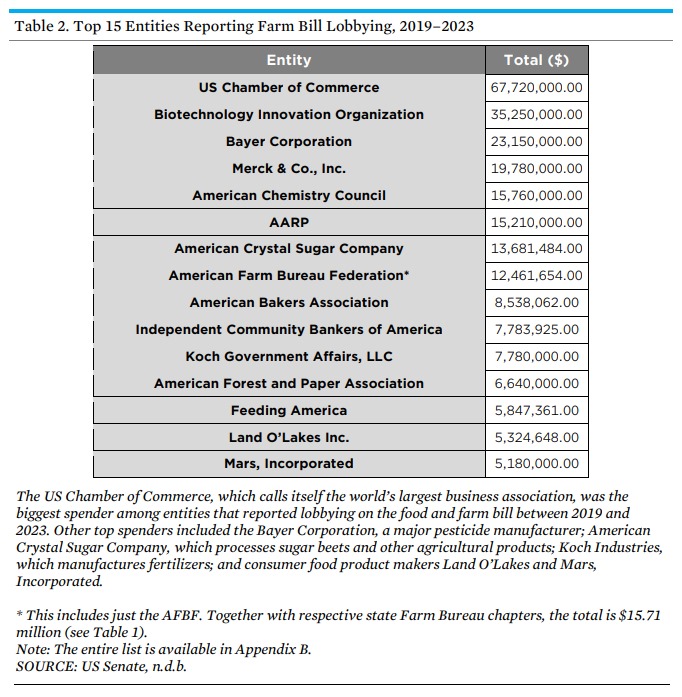
“Lobbying by the agribusiness sector has steadily increased: In just the last five years, the agribusiness sector’s annual lobbying expenditures have risen 22 percent, from $145 million in 2019 to $177 million in 2023,” the report said. “And each year, agribusiness spends more on federal lobbying than the oil and gas industry and the defense sector.”
Groups that Spent on Lobbying
The report said that “a total of 561 companies, industry associations, other special interest groups and advocacy organizations reported lobbying on the food and farm bill during this (2019-2023) time period. Top spenders included the US Chamber of Commerce, the American Crystal Sugar Company, the American Farm Bureau Federation (AFBF or Farm Bureau), and Koch Industries.”
Between 2019 and 2023, the report says, the US Chamber of Commerce was the biggest spender on lobbying, with a little more than $67 million spent, followed by Biotechnology Innovation Organization with a little more than $35 million in spending and Bayer Corporation with a little more than $23 million in spending.

In addition, the report says, “agribusiness-linked political donors also sought to influence key food and farm bill architects through an additional $3.4 million in campaign contributions during the same five-year period. Contributions went to the campaigns of Rep. Glenn ‘G. T.’ Thompson (R-PA), chair of the House Committee on Agriculture; Rep. David Scott (D-GA), ranking member of the House Committee on Agriculture; and Sen. John Boozman (R-AR), ranking member of the Senate Committee on Agriculture, Nutrition and Forestry. (The chair of the Senate committee, Sen. Debbie Stabenow [D-MI], is retiring in 2024 and was not up for reelection and accepting campaign contributions during the study period.)”
Elbein reported that the report’s co-author Karen Perry Stillerman said that “‘the food and farm bill has the power to transform our food and farm system, and agribusiness and industry groups know this.’ These groups ‘started lobbying from almost the moment the last farm bill was enacted, showing that these groups are always working to influence this legislation in their favor.’”
Specific Lobbying Details Remain Unknown
While the report details the amount spent on lobbying for the Farm Bill using open records research through OpenSecrets and lobbying disclosure databases, it says that it is impossible to know exactly what the lobbying funds were spent on.
For example, the report says, “Koch (Industries) is one of the largest privately held multinational corporations within the United States and has a stake in various aspects of the food and farming system, including fertilizer and agrichemical manufacturing. Koch also produces fuels like natural gas and has recently spent $3.6 billion to acquire a new fertilizer production facility in Iowa (in the heart of the US commodity production zone), demonstrating that the interests of agribusiness and the oil and gas industry overlap. There is no way to know, however, specifically what Koch was lobbying for in the food and farm bill.”
Source : illinois.edu